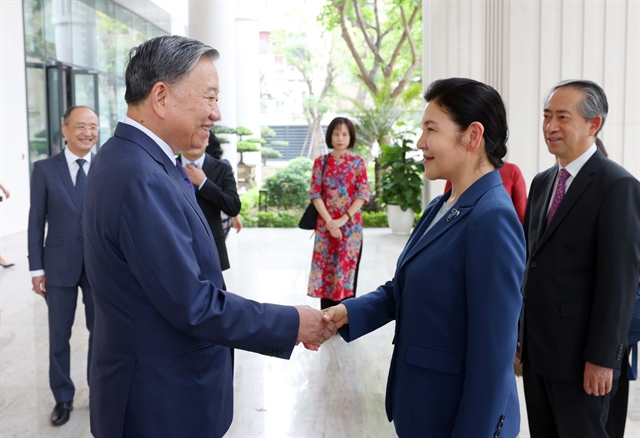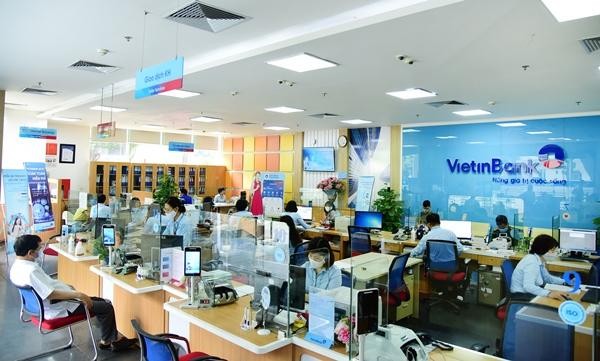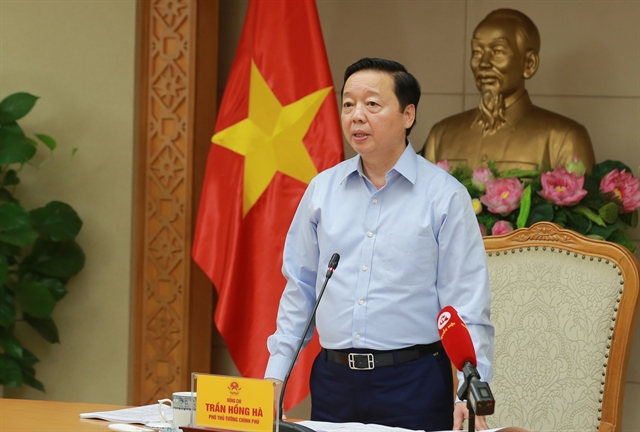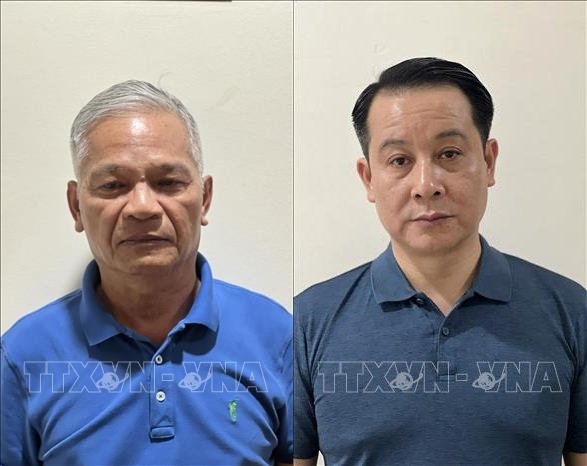 Politics & Laws
Politics & Laws

Việt Nam’s approach and initiative proposals laid out by Vietnamese Prime Minister Phạm Minh Chính’s at the United Nations Security Council High-level Open Debate on “Enhancing Maritime Security - A Case for International Cooperation” earlier this week have drawn appreciation from international experts, Vietnam News Agency (VNA) reports.
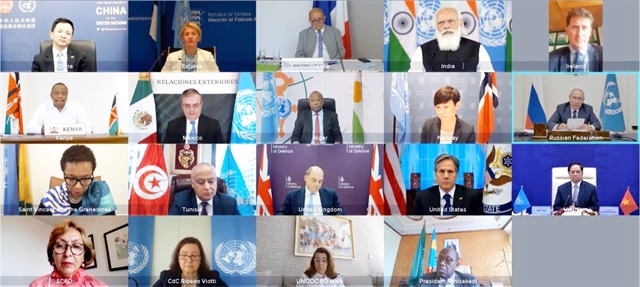
|
| United Nations Security Council High-level Open Debate on “Enhancing Maritime Security - A Case for International Cooperation” was held virtually on August 9. — Photo from UN Security Council |
HÀ NỘI — Việt Nam’s approach and initiatives laid out by Vietnamese Prime Minister Phạm Minh Chính’s at the United Nations Security Council High-level Open Debate on “Enhancing Maritime Security - A Case for International Cooperation” earlier this week have drawn appreciation from international experts, Vietnam News Agency (VNA) reports.
Mr. James Rogers, co-founder and Director of Research at the UK's Council on Geostrategy, who specialises in British geostrategic and maritime power, and Euro-Atlantic, Indo-Pacific and Polar geopolitics, in an interview with the VNA correspondent in the UK, agreed with PM Chính’s emphasis on the fact that given the significance of the sea for the system of international commerce, it was important to keep it open and free for access by all countries.
Mr. Rogers said although most countries had signed the United Nations Convention on the Law of the Sea (UNCLOS), which governs the behaviours that countries can undertake at sea, some countries had ignored rules and regulations they subscribed to in the past. That was the problem for all countries, not just those around the South China Sea (called the East Sea in Việt Nam), he said.
The British expert acknowledged the importance of regional coordination for maritime security in the South China Sea as proposed by PM Chính, pointing out that this should be facilitated not only in the UN, but also in ASEAN, particularly in relation to regulations of the Code of Conduct of Parties in the South China Sea. He also pointed to the necessity for a coordination mechanism that encourages countries to uphold important maritime norms established through the UNCLOS system.
He agreed with the Vietnamese PM's point that regulations and conduct of states at sea must comply with both the UN Charter and UNCLOS system, saying that any additional future policy or proposals in relation to the East Sea security and maritime rights must correspond to these rules and regulations that the countries have subscribed to.
He said it was very good seeing Việt Nam as an important regional power and close partner with many different countries in the world, including the UK, taking the lead in bringing this issue to international attention. He also acknowledged the role of Việt Nam and its support and leadership in dealing with security issues in the South China Sea, given the country's important location.
Regarding maritime security cooperation between Việt Nam and the UK, Mr. Rogers said the two countries would have many different opportunities in the coming years given the UK's increasing presence in the Indo-Pacific region.
He said the UK's deployment of the carrier strike group (CSG 21) in the region demonstrated that the country was undertaking its tilt towards the Indo-Pacific, which was put forward in the UK government's integrated review of security, defence, development and foreign policy released in March this year.
He pointed out that the UK understands the strategic significance of the Indo-Pacific and the South China Sea in Southeast Asia in particular, and therefore, takes the region seriously when deploying its largest and most powerful maritime group in the region.
As the UK intends to deploy later this year two patrol vessels permanently in the region beyond the periodic deployment, which will interact with regional partners, of which Việt Nam is an important one, Mr. Rogers said he saw the prospect for enhancing Việt Nam-UK cooperation.
Lauding Việt Nam’s proposals, Professor Giuseppe Cataldi from the University of Naples “L’Orientale”, who is President of the International Association of Maritime Law, reiterated Việt Nam’s call for relevant parties to intensify dialogue and cooperation and respect for international law, particularly the 1982 UN Convention on the Law of the Sea (UNCLOS).
Agreeing with Việt Nam’s view that UNCLOS is the "Constitution" of the seas and oceans, Cataldi said that countries needed to comply with the provisions of this original legal document and avoid unilateral actions that may escalate current maritime disputes.
Dr. Antonio Albanese, expert in world geopolitics, director of AGC Communication, assessed that Việt Nam’s proposals not only showed the universality in the global context, but also contributed to promoting a substantive approach to solving specific problems of the region. Việt Nam had affirmed its support for ensuring maritime security based on clear and consistent rules within the UN framework and concretised into common codes of conduct, he stated.
Việt Nam’s stance of resolutely opposing any unilateral actions and seeking multilateral and peaceful solutions was a suitable choice for the interests of each country and the globe’s common interests, thus ensuring equal access for all countries, especially in the fields of international trade and navigation, he added.
As an expert in Asian geopolitics, Prof. Antonio Fallico, President of the Conoscere Eurasia Association in Veneto, stated that Việt Nam’s proposals clearly demonstrated a foreign policy of peace and cooperation and its responsibility for regional and international stability and security.
From the Czech Republic, Dr. Takashi Hosoda, an expert on Việt Nam and the Asia-Pacific from the country’s Charles University, said that PM Chính’s speech could be considered an important milestone for the relations between Việt Nam and India because the Prime Minister of India – the rotating Chairman of the UN Security Council – was the one who took the initiative to organise, and also presided over the UNSC meeting.
Việt Nam and India played increasingly important roles in ensuring the maintenance of maritime security in the South China Sea and the Indo-Pacific as well as resolving issues related to peace and security in the region. The two countries also shared many strategic similarities, so it was important for Việt Nam to enhance cooperation with India, Hosoda stated.
He spoke highly of the proposals made by the Vietnamese Government leader to contribute to solving maritime security challenges, especially the need for the international community to raise awareness of the importance of maritime security as well as threats to marine security.
To that end, the expert suggested Việt Nam make specific contributions within the bilateral and multilateral cooperation frameworks, including the cooperation mechanisms between the European Union (EU) and Asian countries such as the EU Critical Maritime Route Wider Indian Ocean (CRIMARIO).— VNS


